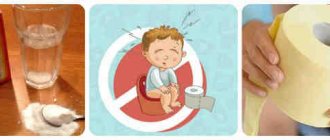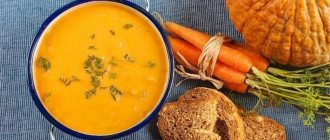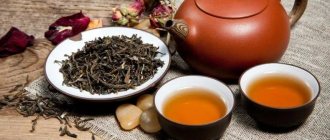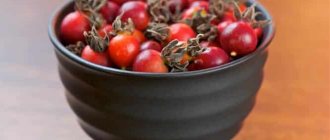From this article you will learn:
- Description of gastritis of the stomach
- Diet for gastritis of the stomach
- Allowed and prohibited foods for gastritis
- The benefits of ionized water for gastritis
Nutrition for gastritis (inflammation of the stomach) is usually prescribed by a doctor after conducting the necessary examinations. At the same time, there are certain rules that will have to be followed in any case, for example, avoiding spicy foods or mushrooms. Equally important is drinking water, especially in a certain amount.
In addition, the water must be clean, so as not to add new problems to the body, and most importantly, healthy. In our article we will tell you how nutrition should be organized for gastritis and what water to drink to improve your well-being.
Description of gastritis of the stomach
Gastritis is a disease caused by inflammatory processes in the gastric mucosa. It negatively affects the production of hydrochloric acid, which, if not properly treated, can lead to digestive problems.
Most people, when it comes to gastritis, believe that the factor that has the greatest influence on the appearance and development of the disease is poor nutrition. However, scientists have proven that this is not entirely true.
Like any disease, gastritis does not appear spontaneously, but goes through several stages. First, the mucous membrane turns red and swells. Then the walls of the stomach thicken - this is a clear sign that the disease has become chronic.
Three studies that will help stop aging
Such a simple element as water has always been considered vital and necessary.
But at the same time, the number of myths about water, scientific facts and opinions that are imposed every day and then refuted, encourages us to look for answers to our questions. To help you, my team and I have prepared a webinar and a gift: 3 unique materials based on the experience of our experts on prolonging youth with the help of water. After completing our free webinar you will learn:
Artyom Khachatryan
practicing physician-nutritionist, naturopath
Immediately after registration you will receive a selection of studies:
Aging: you can't stop it, you can't accept it
What conclusions did 21st century scientists come to when studying water and its ability to prolong youth?
In fact, we don't know anything about water.
Important information for prolonging youth that we could have been told back in school
Hydrogen water is the most powerful natural remedy for prolonging youth
Why hydrogen-enriched water is considered the most effective, safe and affordable way to prolong youth
Find out how water can take care of your health, youth and beauty at a free webinar by nutritionist Artyom Khachatryan!
If the disease is started and it continues to progress, this will lead to the areas of the stomach where the process occurs thinning and atrophying. A tear will occur, in place of which scars will subsequently appear, and at the last stage - erosions and ulcers.
Timely treatment helps stop the progression of the disease. The sooner treatment measures begin, the higher the likelihood that the course of the disease can be stopped before ulcers and erosions appear.
Atrophic gastritis
09.10.2021
It is known that atrophic gastritis is a common disease that damages the glands of the stomach and thereby disrupts its normal functioning. Most often, this disease affects older people, less often - people of other ages.
Specifics and types of atrophic gastritis
Inflammatory processes in the gastric cause damage to the gastric , which produce gastric juice containing hydrochloric acid, intended to break down food. This disease is called atrophic gastritis .
If there is insufficient production of gastric juice or atrophy of the glands, this leads to disruption of the functioning of the entire intestines , pancreas , and liver . There are two types of atrophic gastritis
- with low acidity. With this gastritis , atrophic areas spread in the gastric , and polypous growths appear.
- with high acidity. Such gastritis gastric mucosa , similar to the epithelium of the small intestine .
Causes of the disease
The emergence and development of any disease is always preceded by a cause. With regard to atrophic gastritis , a number of reasons can be identified that increase the risk of its development in a person. These are the following reasons:
- Eating spicy, very hot, spicy or too cold food.
- Poorly chewed food also negatively affects the stomach .
- Drinking drinks that have a harmful effect on the gastric . These include carbonated and alcoholic drinks, coffee, cigarettes.
- Medications. Long-term use of various medications can lead to the development of atrophic gastritis . Poisoning with various chemicals. This can happen when you inhale vapors, dust, powder and droplets of chemicals, as well as when liquid chemicals enter the human body, namely the stomach .
- Reflux is the process of returning intestinal to the stomach .
Symptoms of atrophic gastritis
For a long time, this disease occurs without any clinical symptoms and therefore it is not always possible to identify it in the early stages of development. But when the patient’s condition begins to deteriorate, the symptoms of atrophic gastritis manifest themselves as follows:
- Sleep disturbance, irritability, depression, lethargy.
- Heaviness in the stomach , heartburn , belching . This happens after every meal, and heartburn can be long-lasting and cannot always be eliminated with medications. Belching may have an unpleasant odor and a sour taste.
- Weight loss.
- Intestinal dysfunction . Abnormal bowel movements occur ( constipation , diarrhea).
- Dull and aching pain in the abdominal .
- Disruption of the normal functioning of the patient's immune system
- There is a deterioration in the normal intake of all vitamins, microelements, and nutrients into the body, which leads to the development of anemia, vitamin deficiency, weakened immunity and the general condition of the sick person.
Treatment of atrophic gastritis
Symptoms of atrophic gastritis can also appear with some other types of gastritis and therefore, for an accurate diagnosis, you need to consult a gastroenterologist . To obtain reliable information about the patient’s condition, the doctor prescribes a series of diagnostic tests, based on the results of which he selects individual treatment for atrophic gastritis .
In addition, an important condition in the treatment of atrophic gastritis is adherence to a diet and proper nutrition, with the exclusion from the diet of all foods prohibited by the doctor for such a diagnosis. Medicines are prescribed based on the results of tests , examinations, and diagnostic studies. These can be painkillers, antimicrobial drugs.
It is also recommended to take mineral water such as Essentuki - No. 4 or No. 17, Narzan, Borjomi and others. During treatment, special physiotherapeutic procedures are mandatory.
Published in Gastroentorology Premium Clinic
Diet for gastritis of the stomach
Any disease of the gastrointestinal tract forces us to very carefully reconsider the nutritional system: not only foods, but also the number of meals and the time at which they will be consumed. Meals for gastritis (inflammation of the stomach) should be fractional.
This is interesting!
“Top foods that are good for the liver” Read more
It is recommended to eat at least 5 times a day, which means that snacks should be added to the usual breakfast, lunch and dinner. The number of snacks is individual, but should not be less than two, since it is extremely important to prevent a strong feeling of hunger during gastritis. Otherwise, the acid will eat away at the stomach. When eating fractionally, it is important to monitor not only the amount of food, but also its calorie content.
Diet for gastritis of the stomach
Another principle of nutrition for gastritis (inflammation of the stomach) should be the eating schedule - it is better to always eat at the same time. This attitude towards meals will have a positive effect on the secretion of gastric juice: the body will remember that food arrives at one time or another, which means it will have time to prepare properly. In addition to the regimen, the composition of the food is also important: if you eat complex carbohydrates (porridge) for breakfast, then you should not change this habit.
Is it good to drink water?
It is known that water makes up 60% of the human body; it is the environment in which metabolic processes take place in cells, organs and tissues. The supply of water to the body is one of the conditions for maintaining its vital functions.
There is no scientific evidence that drinking a lot of water is good for the body. Questions are constantly being discussed about whether increasing water consumption is good for health, does it help you lose weight, does your skin remain smooth, how much water should you drink? The analysis of existing studies indicates that the role of water is exaggerated.
It is true that drinking more water helps flush out the kidneys, but there is no evidence that it benefits the kidneys or other organs.
Allowed and prohibited foods for gastritis
There are several basic nutritional principles that are useful not only for people with gastritis, but also for those who care about their health. They are simple and include avoiding fried, fatty, spicy, smoked foods, as well as sweet carbonated drinks, bright spices, baked goods and alcohol. However, the best menu is one created by a professional doctor. And don’t forget about the rules of eating: food should be at a pleasant temperature, food should be fresh and thermally processed, you should eat slowly, chewing thoroughly.
How to Guaranteed Lose Weight with Water: 3 Simple Habits
There are almost no women in the world who have never been on a diet. Sooner or later, everyone faces the desire to lose a couple of kilograms.
In order for the treasured number to appear on the scales sooner, introduce 3 healthy and super simple habits into your life: we have prepared a document with experts where we describe them in detail.
How to Guaranteed Lose Weight with Water: 3 Simple Habits
Artyom Khachataryan
Practitioner, nutritionist, naturopath
75% of our course participants who follow these habits have significantly reduced their weight!
You can download the document for free:
PDF: 2 MB
Giving up habitual foods is difficult for many. Of course, most bright flavors are prohibited. However, a person knows how to adapt. Give yourself time and you will learn how to cook food from allowed products. What does this include:
- Flour: yesterday's wheat bread, fresh and dried, crispbread.
- Complex carbohydrates: any types of cereals (rice, buckwheat, semolina, oatmeal, etc.)
- Vegetables: You can eat stewed, boiled, baked or steamed root vegetables (beets, potatoes, carrots), as well as broccoli and cauliflower, zucchini and pumpkin. Nutritional rules for gastritis (inflammation of the stomach) require that fresh vegetables be excluded from the patient’s menu, so they will have to be abandoned.
- Fruits: low acidity, bananas, sweet pears, baked apples. You can drink jelly, compotes or make jelly.
- Eggs: steam omelet, soft-boiled or hard-boiled eggs. No more than 2 pieces per day.
- Vegetable oil: no more than 20 grams per day.
For diseases associated with the gastrointestinal tract, it is not the products themselves that become prohibited, but the method of their preparation. However, there is a short list of what you will have to give up.
- From serving food in large pieces.
- Berries and fruits with high acidity (green apples, citrus fruits, pineapples, kiwi, currants, cherries, etc.)
- Fresh vegetables and legumes.
- All types of mushrooms, regardless of cooking method.
- Fresh bread and pastries.
- Spices and other flavor enhancers (including vinegar, various ready-made dressings and seasonings).
- Pearl barley, millet, and whole grain pasta.
- As for drinks, it is recommended to avoid strong varieties of tea, coffee, cocoa, alcohol and any carbonated drinks.
The list may vary depending on the stage. In order not to harm yourself by self-medication, it is important to consult a doctor for a more complete consultation.
About balance
The balance of water in the body consists of its consumption and excretion.
With food, a person receives about 700 ml of water per day, in the form of drinks and pure water - about 650 ml, about 350-600 ml of water is formed during the metabolic process in the body itself as a result of the oxidation of proteins, carbohydrates, and fats. On average, consumption is about 2 liters of water without any self-abuse.
When breathing and evaporation from the surface of the skin, about 800 ml of water is released per day, 100 ml of water is excreted in feces, and about 800 ml is excreted by the kidneys. The average minimum daily water excretion is about 1700 ml.











